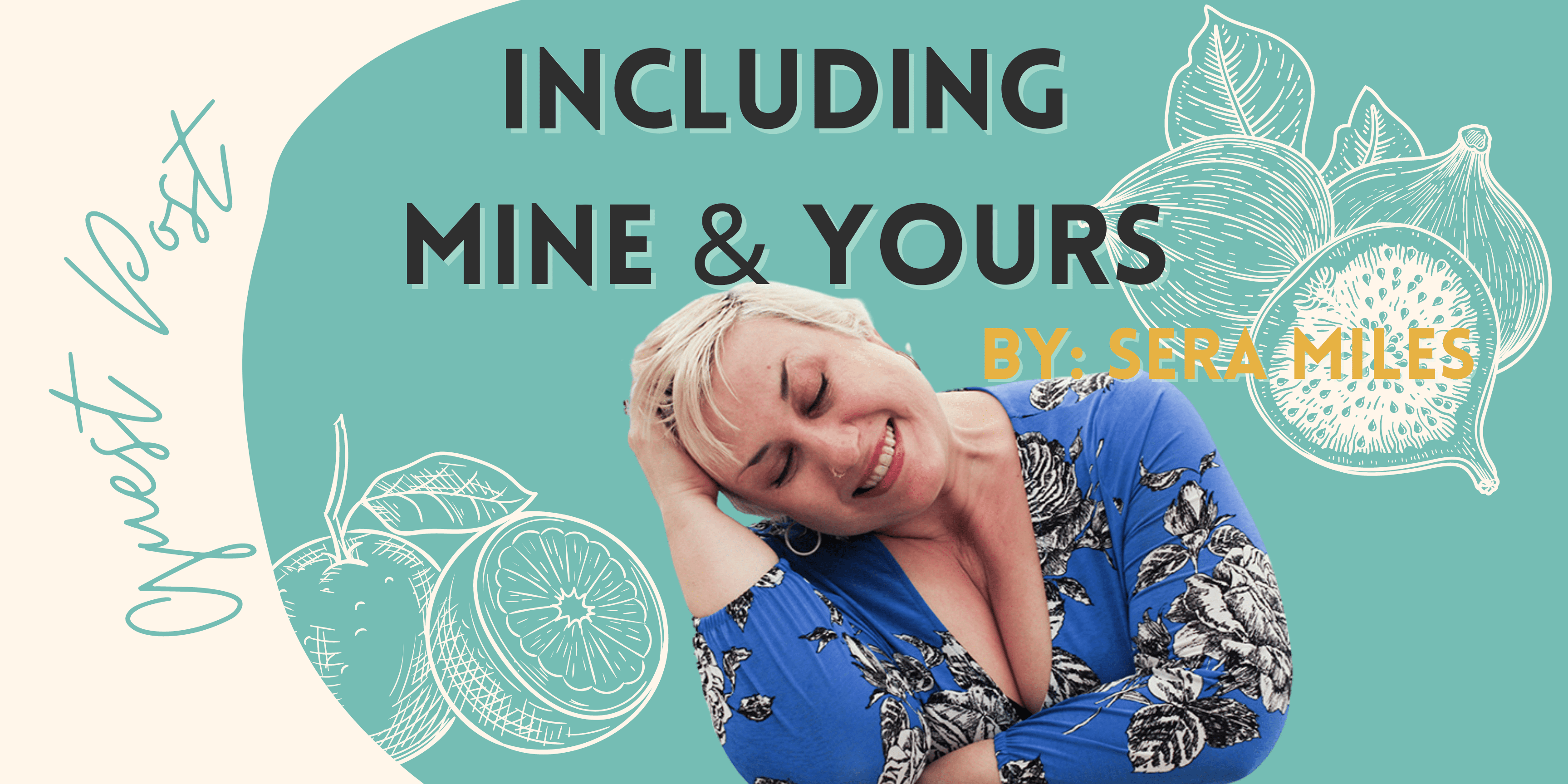CW: Eating Disorders
I want you to know that if you feel like a failure in the realm of body positivity, you are not alone. I’m sitting next to you, trying to believe that this body in its current state is worthy of love, care, pleasure.
If you’re scared to express how much you struggle, you’re not alone.
A little tide has turned. In the media, I see such varied bodies, from shape to size to presentation (this is not to say the work is done, but to say that twelve-year-old me in 1988 would have had a different trajectory, had such images been even marginally available). Still, I wager that the ships that could have taken me to the island of body positivity were docked long ago. I don’t know how to untie those knots, let alone steer.
I show my daughter images of women I think are alluring, beautiful, aesthetically wondrous. That’s what you look like, Mom, they tell me, hazel eyes flickering. They’re exhausted by my body hate.
I wish I was.
I hover over one word: wish. I think about my belly-deep faith in manifestation. I think about my desire to center my work in pleasure activism, how doing so connects sex work to my belief systems around self & community care, & our bodies’ critical need to experience sensory pleasure.
What if I—we—could get better?
What if we believed we were worthy of the kind of care that getting better demands?
The Eating Disorder (ED) demands that we divorce the body from pleasure, that we convince the brain that corporeal pleasure is unnecessary, a weakness.
The body becomes a locus for withholding & suffering. Many of us get stuck in starvation loops, followed by binging loops. These loops brain thrill the brain. The body? It hurts. It roars with hunger; it begs to stop eating.
And food? Food is the enemy. Food is complicated. Food taunts.
What if food were about pleasure? What if the specter of ED was put under a light so glaring it couldn’t hide in our psyches so easily anymore? What if we focused not on changing our physical forms, but on weakening ED? What if we started by tying together the body, food, & pleasure?
If you, like me, have had ED since childhood, you may have a wavering sense of what pleasure actually is. I can name & claim orgasm. I can name & claim a good cocktail, & I won’t give up my occasional cigarette, especially w/ coffee on a Fall morning. I’m trying to pay more attention to how other people experience pleasure—they bite into food & their countenances change! Their eyes flutter, or their shoulders come up tight, then release like flowing water as their lips part to relish what lingers in the mouth. Sometimes, they savor tiny bites that take care & time to prep, forkful by forkful. I find it all deeply curious, & I want to lean into that curiosity.
I imagine that life w/ weakened ED will involve reconnecting pleasure to embodiment.
I believe that the body is a source of & for pleasure. I believe that all bodies deserve access to pleasure. I’ve built not only my sex work career but also my stake in the world upon that essential idea: people have an inalienable right to enjoy their bodies, consensually & as safely as is situationally reasonable.
As the Body Positivity movement grew, in response grew the idea of Body Neutrality, which has a strong foothold in ED communities. What if we strove for radical acceptance of ourselves, moment to moment? I wish for all of us days during which we think not about changing our bodies but about caring for & pleasuring them. I believe that striving for neutral acceptance is the radical initial step so many of us can more readily take.
I know that none of us deserve to suffer inside hellholes of judgment & self-recrimination regarding our bodies & their needs. Perhaps a place for some of us to start is in adding “including mine” to how we parse the movements around body positivity & self-care. I invite you to say aloud (whispering counts, too):
All bodies are good bodies, including mine. All bodies are deserving of care & pleasure. Including mine.
All bodies are worthy of love, including mine, exactly as it is.
About this month’s guest author:

Sera Miles is CEO of People Exchanging Power (PEP) and the owner/founder of Becoming: Education, Connection, & Support (BECS, opening Feb 2022). Human sexuality courses at the University of New Mexico, Southwestern College, and University of Denver have welcomed her as a guest speaker; she’s presented at Texas Tech, Central New Mexico Community College, DomConLA and DomConNOLA, Beat Me in St Louis, Northwest Leather Celebration, and Behind Closed Doors in Tucson; and taught workshops for various groups and sex shoppes across the United States. In 2016, the Sexual Assault Nurse Examiners (SANE) of New Mexico invited Sera to speak about BDSM at their annual conference, and the following year, Sera served as the BDSM advisor to the New Mexico Strangulation Task Force. Sera has appeared in numerous fetish videos, some so ancient they require a VCR, and she stars in “Bonetown” and “Bonecraft,” the world’s first pornographic computer games. For six vibrant years, Sera led New Mexico FetLifers, a social networking group she founded, and which produced the conference “Evolution of the Revolution.” She co-founded New Mexico’s Sex Workers Outreach Project chapter and organized Albuquerque’s events for the International Day to End Violence against Sex Workers (aka Red Umbrella Day) from 2009 to 2015. Sera, by invitation, spoke at the 2018 March for Trans Rights in Albuquerque, which was an honor that she strives continuously to be worthy of. The United Court of Sandias bestowed upon Sera the lifetime title, “Inspiration of the Sandias,” and in 2018, she co-chaired UCS’ Year of the Woman committee, where she spear-headed the #periodpositive project, collecting menstruation supplies to help under-served communities, and working to dismantle cultural shame about periods. Sera identifies as a queer demisexual leather D-type, in addition to the identities of activist, editor, type-A personality, sex worker, lesbian, and Leo Dragon.
seramiles.com
peplove.com
becomingecs.com (coming soon)

